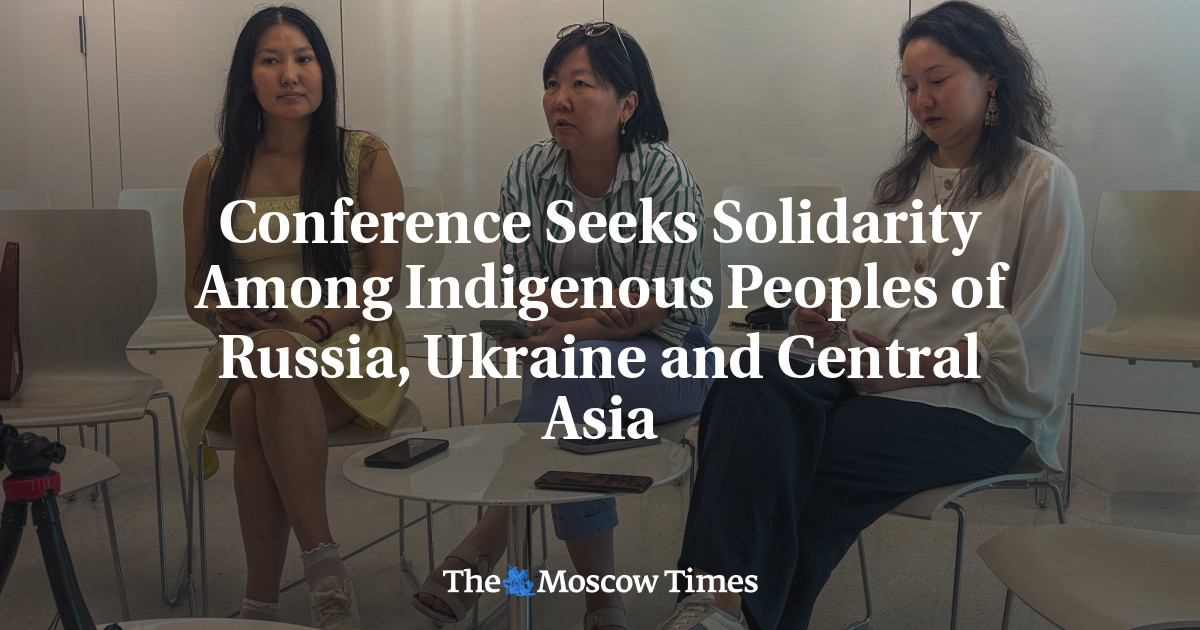
Conference Seeks Solidarity Among Indigenous Peoples of Russia, Ukraine and Central Asia
How did your country report this? Share your view in the comments.
Diverging Reports Breakdown
Conference Seeks Solidarity Among Indigenous Peoples of Russia, Ukraine and Central Asia
First-of-its-kind forum, “Indigenous Vision: Centering Our Voices, Resilience and Knowledge,” saw two days of discussion, networking and shared learning. The goal of seeking equality and institutional parity with the Russian opposition was present throughout. “Moscow experts” were entirely absent from the forum, a decision meant to highlight the fact that while everyone was there to build solidarity, all of the various peoples and republics faced their own issues. The group also refused to discuss a shared vision for the future, as every region was different and had different issues.. The phrase “democracy is impossible without decolonization” repeatedly came up during the press conference, highlighting the group’s shared belief that Russia needs to reckon with its colonial past.
No Moscow experts Choinova said one of her main goals was to “create a platform for Indigenous voices so we can start a dialogue on equal terms with the Russian opposition.” The goal of seeking equality and institutional parity with the Russian opposition was present throughout. The group bemoaned the fact that they are often asked why groups like Khodorkovsky’s or Navalny’s organizations are not invited to the event. Maladaeva said she believes that the Russian opposition is constantly going through an identity crisis, while Russia’s Indigenous populations are much more sure in their identities.
“The Moscow opposition, the Russian intelligentsia, has been in a crisis of identity for many centuries. They don’t know who they are: Europeans, Asians,” she said. “And we don’t have any crisis of identity. We know who we are, we know what we want. But we are bound by shackles to people who are marching back and forth and don’t know what to do.” The phrase “democracy is impossible without decolonization” repeatedly came up during the press conference, highlighting the group’s shared belief that Russia needs to reckon with its colonial past. That refrain also helped to explain the makeup of the event. “Moscow experts” were entirely absent from the forum, a decision meant to highlight the fact that while everyone was there to build solidarity, all of the various peoples and republics faced their own issues. Jigjitova said she believes that the hyper-centralized, Moscow-centric system is incompatible with decolonization, as it creates projects where Indigenous people are invited but not centered. “Indigenous people are being treated, again, not subjectively. They are made an object for their own projects,” she said.
No need for a common vision of the future Despite being pressed repeatedly on whether or not the forum would culminate with the issuance of a declaration or communiqué, the activists expressed little interest in releasing one for the sake of convention. “It’s just a document, nothing happens,” Maladaeva said. “I’ve seen it in different conferences. People sign it, but then nothing follows.” Instead, they stressed that they were in the “dialogue stage” and that they would release a document of “Indigenous knowledge.” The group also refused to discuss a shared vision for the future, as every region was different and had different issues. The goal instead was to find ways to build solidarity and amplify their voices. “The Caucasus and Siberia are totally very different and definitely they have their own vision, and everyone is going to have different futures. We cannot tell them our vision and expect them to follow our ways,” Choinova said.
